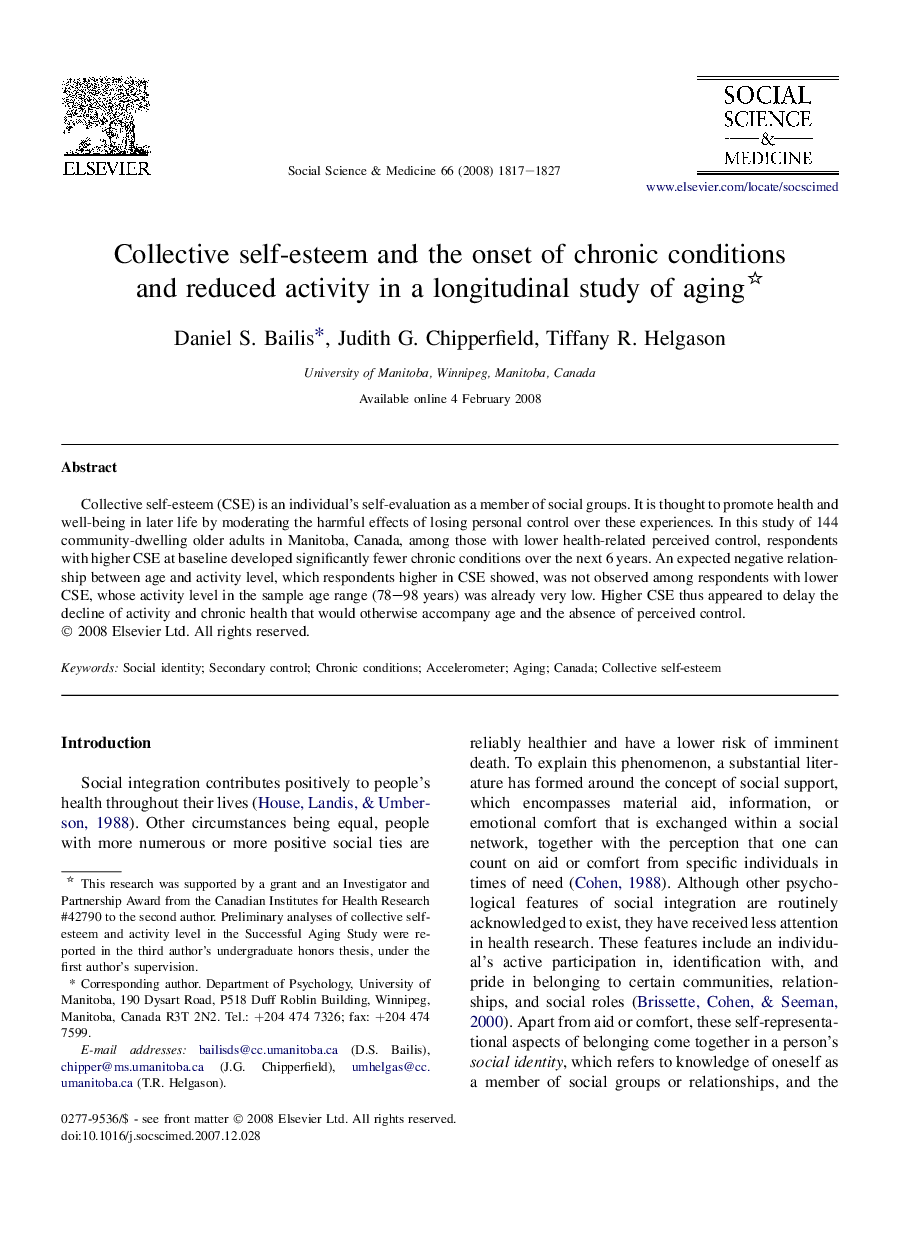| Article ID | Journal | Published Year | Pages | File Type |
|---|---|---|---|---|
| 953920 | Social Science & Medicine | 2008 | 11 Pages |
Collective self-esteem (CSE) is an individual's self-evaluation as a member of social groups. It is thought to promote health and well-being in later life by moderating the harmful effects of losing personal control over these experiences. In this study of 144 community-dwelling older adults in Manitoba, Canada, among those with lower health-related perceived control, respondents with higher CSE at baseline developed significantly fewer chronic conditions over the next 6 years. An expected negative relationship between age and activity level, which respondents higher in CSE showed, was not observed among respondents with lower CSE, whose activity level in the sample age range (78–98 years) was already very low. Higher CSE thus appeared to delay the decline of activity and chronic health that would otherwise accompany age and the absence of perceived control.
